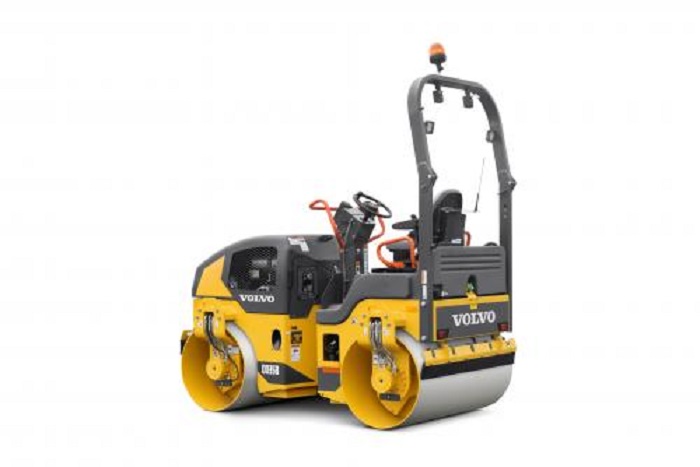Volvo DD30B, DD35B rollers are up to 20% more fuel efficient than previous models. The DD30B and DD35B double-drum asphalt compactors have drum widths of 49 and 54 inches and standard operating weights of 6,839 and 8,185 pounds.
These are for commercial and residential site-development work respectively.
The rollers have 10 degrees of oscillation and 30 degrees of frame articulation in each direction. They also feature the Volvo Twin Lock traction-control-and-torque-transfer system.
This is designed to minimize drum slippage on steep inclines and slippery surfaces. Using a 49.6-horsepower Tier 4-F engine, the DD30B and DD35B are up to 20% more fuel efficient than previous models.
Also read: Volvo unveils new DD105 OSC double drum compactor
Features
According to Volvo, fuel efficiency is further enhanced with the optional auto-idle feature. The feature reduces engine speed when controls are inactive for 5 seconds. An auto-vibration feature automatically engages vibratory action when the machine is shifted from neutral.
As a result the system automatically disengages vibration, thus preventing over-compaction. According to the company, this also simplifies machine operation.
To improve finished-pavement quality, says Volvo, drum edges are rounded to avoid marking the mat. The DD30B and DD35B also feature an automatic, variable-interval water-spraying system.
That is designed to prevent material pickup by providing uniform drum coverage and variable flow.
The large 79-gallon water tank’s low positioning gives the machine a low center of gravity. This according to the company enhances stability, and the tank can be refilled from ground level.
The new models also feature a “pillar-less” forward view that provides unobstructed sightlines down to the drum and spray bars. They also have a sloping engine hood that facilitates rearward visibility. Sliding operator’s seat that can adjusted to an optimal position also improves visibility.
The hinged hood allows for ground-level access to the engine and hydraulic components. Passive regeneration of the diesel particulate filter requires no daily input.
Furthermore, parked-service regeneration is required only at 500-hour intervals. An optional foldable ROPS canopy can be collapsed without using special tools to facilitate machine transport

